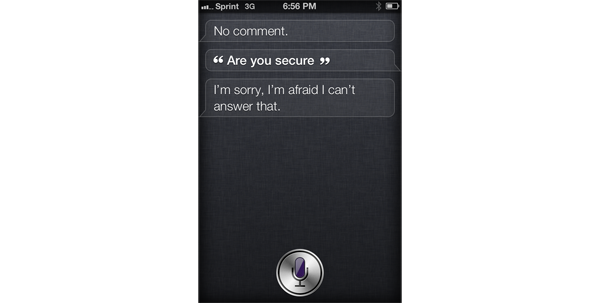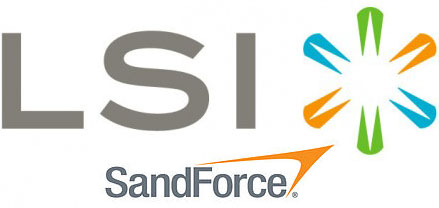Editorials
 AMD has faced some rough time recently. After their ATi purchase back in 2006 AMD has had one poor leader after another. Under Hector Ruiz we ended up with the ill-fated $5.4 Billion buyout of ATi. This was a purchase that caused AMD to not have a profitable quarter for almost 5 years. In fact if AMD had not gotten a settlement from Intel in late 2010 they would still be operating in the red. Hector Ruiz was also responsible for the shedding of AMD’s foundries. This split created Global Foundries and forced AMD as a CPU and GPU manufacturer into a Fabless state. They now have to pay to have their processors made by another company.
AMD has faced some rough time recently. After their ATi purchase back in 2006 AMD has had one poor leader after another. Under Hector Ruiz we ended up with the ill-fated $5.4 Billion buyout of ATi. This was a purchase that caused AMD to not have a profitable quarter for almost 5 years. In fact if AMD had not gotten a settlement from Intel in late 2010 they would still be operating in the red. Hector Ruiz was also responsible for the shedding of AMD’s foundries. This split created Global Foundries and forced AMD as a CPU and GPU manufacturer into a Fabless state. They now have to pay to have their processors made by another company.
- Details
- By Sean Kalinich
- Hits: 3923
 I love a good conspiracy theory on a Monday morning; they can be entertaining, enlightening and also very funny. The one I am talking about is the miss-quoting of Eric Schmidt during Google’s Anti-Trust senate hearings last week. During this hearing he made the statement “Apple's Siri is a significant development--a voice-activated means of accessing answers through iPhones that demonstrates the innovations in search,” He followed this up with this statement “Google has many strong competitors and we sometimes fail to anticipate the competitive threat posed by new methods of accessing information.”
I love a good conspiracy theory on a Monday morning; they can be entertaining, enlightening and also very funny. The one I am talking about is the miss-quoting of Eric Schmidt during Google’s Anti-Trust senate hearings last week. During this hearing he made the statement “Apple's Siri is a significant development--a voice-activated means of accessing answers through iPhones that demonstrates the innovations in search,” He followed this up with this statement “Google has many strong competitors and we sometimes fail to anticipate the competitive threat posed by new methods of accessing information.”
Now I have not been able to determine what order these things were said or what was said in between these two quotes. However, these two items have been used to bolster the idea that Siri is a “threat” to Google’s search empire. In fact at least one media outlet used that as a direct headline. Now I do think that Google is keeping an eye on Siri as it is now owned wholly by Apple, but I do not think they view it as any type of real “threat”.
The problem comes from that fact (yes it is a fact) that Apple has no search engine framework. Siri takes the voice commands and compares them to internal commands. If it is not something that is part of its internal command structure it then looks it up through Apples authorization servers (which parse Google, Bing, Wolfram Alfa, Yelp etc.) The results that are returned are filtered and controlled by Apple’s servers (just as they are by most other search companies). Now this may sound just like Google or Bing etc., but it is not. The thing is that Apple is using other companies’ search indexing and processing power and then selecting their own results. They also (according to some source) lean heavily toward the Yelp service (for entertainment and restaurants). So while Siri is an interesting tool for Apple (one that they bought from another company) it is not a search engine or search framework. It is nothing more than filtered results from other search engines and services.
The second thing to consider is that this was Eric Schmidt testifying to Congress and trying to show that Google is not in violation of the US Anti-Trust laws. Can you really take these comments as “fact”? At the point you are in front of the Senate Committee you are likely to say anything that will make you look less guilty. His comment also never mentioned Siri as a “threat”. He said, “Apple's Siri is a significant development” which is true and something that no one (other than Andy Rubin at Microsoft) has denied. But Siri is not the only voice command service out there. Just take a quick look through the Android market and you will find quite a few that were in existence before Siri and you will also find that Siri was around as an App long before Apple bought them and then limited the App to just the iPhone 4S through the use of their internal servers.
This one conspiracy theory seems to be a lot more like spin than real fact to me. Siri is an important development, and one that will continue to grow, but there are competitors to Siri already in place and the market is far from Apple controlled. Yes, the search game is changing; but believe me Google, Microsoft, Yahoo and others are perfectly safe from Siri.
Discuss this in our Forum
- Details
- By Sean Kalinich
- Hits: 5074
 There is no doubt that Apple under the hand of Steve Jobs was a force to be reckoned with. It seemed they were almost untouchable in court and had the freedom to do what they wanted to in the market and in their business dealings. However, in the short weeks since the unfortunate passing of Steve Jobs, Apple has been handed down two very unusual judgments. The first one we told you about a couple of days ago where a Spanish court ruled against Apple in their attempt to label the Spanish corporation Nuevas Tecnologías y Energías Catalá as a product pirate.
There is no doubt that Apple under the hand of Steve Jobs was a force to be reckoned with. It seemed they were almost untouchable in court and had the freedom to do what they wanted to in the market and in their business dealings. However, in the short weeks since the unfortunate passing of Steve Jobs, Apple has been handed down two very unusual judgments. The first one we told you about a couple of days ago where a Spanish court ruled against Apple in their attempt to label the Spanish corporation Nuevas Tecnologías y Energías Catalá as a product pirate.
This loss has now turned into a counter suit for loss of revenue and for damage to the company’s reputation as well as an Anti-Trust complaint against Apple. These two cases have not even started yet so we do not have any new information, but it is significant in the fact that the original indictment filed by Apple used the same argument that Apple has successfully used against Samsung in the EU and in Australia (the product does look like a stretched iPad).
Although this is localized to Spain the ruling does set precedence as now other courts will look to the decisions made in other countries when ruling on similar matters. It is also important to remember that the ban in Australia is not permanent just yet. Although there is a preliminary ban in place the final ruling will not happen for a bit yet. This loss could factor into it. It may also help Samsung in the EU with their appeals there.
Our next unusual loss for Apple comes in the form of a default judgment handed down by a German court which bans the delivery or sale of Apple mobile products in Germany. This judgment was put into effect due to the fact that Apple did not respond in time to the charge that they are infringing on two of Motorola’s patents. The reason Apple chose not to respond is not clear as the have plenty of legal staff to cover this kind of thing. Other sites have reported that Apple does not care about this because they are only the parent company (which the original suit was against) and their local subsidiary (Apple GmbH) is free to continue to sell Apple products as long as they like. There are two flaws in this thought, the first is obvious; although Apple GmbH is the local subsidiary there are still run by the global parent. If they continue to sell Motorola can argue this and work to get the sales stopped. The second is the wording of the judgment. It prohibits Apple from “delivering” mobile products into Germany. This means that once Apple GmbH and others run out, well they are out.
There is more to this though. Apple’s German website is nothing more than a redirection to Apple’s US site. Both names are owned by the parent company Apple, Inc. This means that Motorola can have that site taken down in Germany and prevent Apple from selling any mobile product through the web (regardless of where it ships from).
Now we have to remember that this is a default judgment and is by no means final. Apple still has the right to have the case heard and judged on its merits. There is a chance they could win this one yet, but it is odd that they did not answer the first response. We simply do not know why they have chosen not to answer, but it could have something to do with an upcoming hearing into Samsung’s use of FRAND (Fair Reasonable and Non-Discriminatory) patents against Apple. Apple is claiming that the patents that Samsung are attempting to use against it fall under this guideline and that upholding those against Apple alone would be anti-competitive (hello pot). If the EU investigates this and finds against Samsung then Apple can use FRAND as a defense in this case. One of the patents that Motorola is using is essential to the operation of GSM, UTMS, 3G. If Apple attempted to use this now and the EU commission rules in favor of Samsung then that defense is out the window.
So we see some things are changing for Apple since the death of Steve Jobs, the question now is; “are the two related?” Most people would like to think they are not, but we tend to think of big companies as their public persona. When you think of Microsoft you think Bill Gates or Steve Ballmer (and his goofy photos). When you think of Apple you think of Steve Jobs. This is an important sub conscious issue that could lead many to look at Apple differently even in court.
We are going to keep an eye on both the EU investigation into the use of FRAND patents and the German case against Apple by Motorola. We will update you of any major changes in either.
Source for information on the Motorola judgment FossPatents
Discuss in our Forum
- Details
- By Sean Kalinich
- Hits: 2474
 So it’s the 5th of November at 9:01am (Eastern Time in the US) and Facebook is still up. I know that there will be countless articles and comments online today about this and many of them will be less than complimentary. However, the fact of the matter is that this “Op” was probably never really sanctioned by the collective in the first place. Instead this was most likely the work of a handful of members that were angry at Facebook.
So it’s the 5th of November at 9:01am (Eastern Time in the US) and Facebook is still up. I know that there will be countless articles and comments online today about this and many of them will be less than complimentary. However, the fact of the matter is that this “Op” was probably never really sanctioned by the collective in the first place. Instead this was most likely the work of a handful of members that were angry at Facebook.
If you remember our article on this back on the 22nd of September we said “As for Facebook and the 5th of November… I think they are safe, but not because Facebook is secure or well coded (it is not). It is because Facebook really does represent Freedom of speech and expression; even if the owners are rather arrogant and foolish.” We just had a feeling that doing something like this would not be in Anonymous’ best interest and again it would be attacking one of the things that they do represent; a free and open internet (freedom of speech and expression).
Of course the argument can be raised that Facebook is a giant corporation that rakes in tons of cash and has used its members’ images, information and other items to become quite wealthy. This has upset many Anonymous members if some of the comments we have seen are any indication. However the general consensus is that Facebook is a good thing even if there are some areas that are concerning.
In the end Facebook is more user driven than a corporation like Fox, or Bank of America, or the Zeta Cartel. These companies prey off of the general public instead of allowing them the freedom to express themselves as they see fit and to communicate with the rest of the world if they chose. So today when you hear that Anonymous “dropped” another Op or more about how Chaotic they are and their lack of organization (they are a collective, but people keep missing that) just remember that while some of their members have done things that are less than acceptable (like releasing the home addresses of police officers) in the end the vast majority really are after a more open and free internet. This is why things like Facebook, Myspace and most other Social Networking sites are pretty safe.
...Of course the day has just started...
Discuss in our Forum
- Details
- By Sean Kalinich
- Hits: 2124
 Right after the announcement of the SLI/SandForce deal we reached out to a couple of our sources; one at LSI and one inside the Sandforce Sales team. We have already told you about our surprise to hear that people in the DAS (Direct Attached Storage) group had no inkling that the deal was going to happen. One even made the comment that they thought Intel would end up grabbing them. It seemed odd that this would happen with this particular group… at least it did at the time.
Right after the announcement of the SLI/SandForce deal we reached out to a couple of our sources; one at LSI and one inside the Sandforce Sales team. We have already told you about our surprise to hear that people in the DAS (Direct Attached Storage) group had no inkling that the deal was going to happen. One even made the comment that they thought Intel would end up grabbing them. It seemed odd that this would happen with this particular group… at least it did at the time.
We also speculated that LSI might not have talked to the DAS group (even the senior staff) because they would not be part of the new division. That is to say that LSI might end up with their own flash memory drive group. This is not an unbelievable thought as just about any company with access to Flash memory can build SSDs.
Now we have heard back from our contact inside Sandforce and although the reply was the “party line” we think this one does ring true. The comment was something on the order of this move will help us extend our reach. SFI (SandForce Inc.) has a pretty good reach as it is; they are deep in with OCZ, Kingston, Patriot, Corsair and many others. To say that LSI lets them extend their reach is a great clue to what might be in store in the near future.
We feel that LSI could be very interested in making their own SSDs to compete on the market. However, we do not think they will be pulling the plug from their partners any time soon either. You see LSI needs flash memory; this means they need to work with companies like Kingston, OCZ and others to get that vital piece of the puzzle. LSI will get the know-how and performance from SFI and SFI will get the bank roll and size of a company like LSI. We also expect to see LSI take its enterprise knowledge and put it to use making enterprise class SSDs. They have great deal of experience working with Seagate to optimize their controllers for the enterprise market and now they have what they need to push SSDs into that coveted space with a solid name behind them.
The next piece of the puzzle would be LSI entering into an agreement with one of the bigger flash memory companies. If this happens it would complete the set and make this scenario even more likely.
Discuss in our Forum
- Details
- By Sean Kalinich
- Hits: 2545
More Articles …
Page 79 of 89



